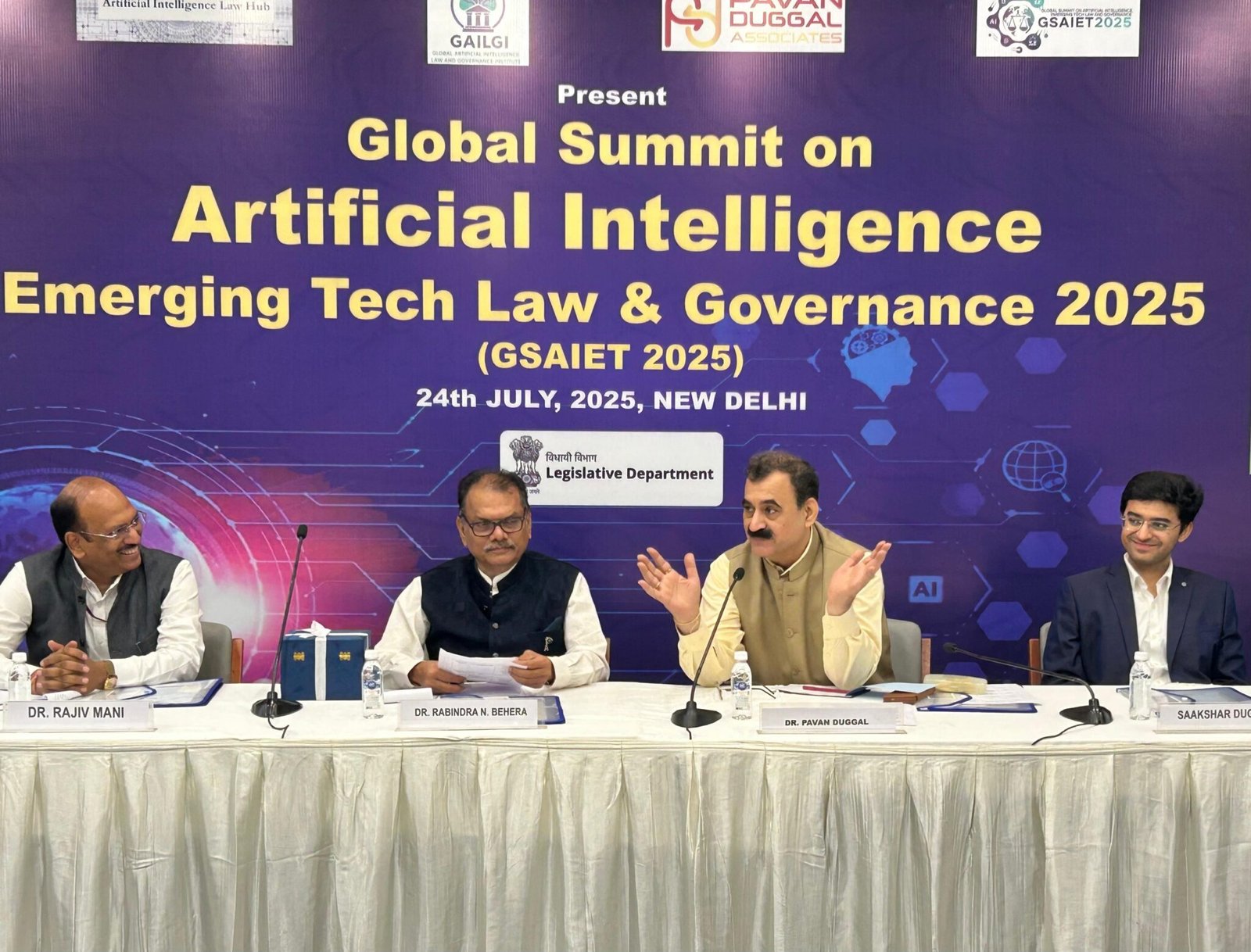The Global Summit on Artificial Intelligence, Emerging Tech Law & Governance (GSAIET2025), hosted in New Delhi on July 24, marked a pivotal moment in the intersection of technology and law. Organized by Pavan Duggal Associates, the Artificial Intelligence Law Hub, and the Global AI Law and Governance Institute (GAILGI), the event assembled legal experts, policymakers, academics, and industry leaders from across the world to tackle one of the most pressing challenges of our time — the governance of artificial intelligence and emerging technologies.
The summit was the brainchild of Dr. Pavan Duggal, an internationally recognized authority on AI law. It served not only as a discussion forum but also as the launchpad for a key international framework: the New Delhi Accord on AI & Governance (2025) — a document summarizing the summit’s key policy recommendations.
Keynote Voices Call for Urgent Regulation and Policy Evolution
During the inaugural session, Dr. Rajiv Mani (Secretary, Department of Legislative Affairs, Ministry of Law) stressed the necessity of proactive self-regulation, particularly in AI and emerging tech spaces. He advocated for a model of “minimal enabling regulation” to prevent technological misuse while fostering innovation.
Algoritha: The Most Trusted Name in BFSI Investigations and DFIR Services
Dr. Rabindra Narayan Behera, Member of Parliament, echoed the urgency for India to adopt AI-specific legal structures. He warned that without timely legislation, the country may struggle to manage the practical and ethical challenges that AI already presents.
Dr. Duggal, chairing the summit, presented ten legal principles critical to shaping global and national AI laws and highlighted the need for balance between legal oversight and innovation. He urged legal systems worldwide to adapt swiftly to evolving tech realities.
Critical Sessions Tackled Accountability, Cybersecurity & Human Rights
The summit featured six detailed sessions that unpacked the multi-dimensional risks and responsibilities tied to AI and emerging technologies. These included:
- AI Law, Policy & Governance Trends
- AI Governance: Issues & Challenges
- AI Accountability & Liability
- AI Cybersecurity, Crime & Autonomous Defence
- AI and Fundamental Rights, Competition & IPR
- Law of Quantum, Metaverse, RegTech & LegalTech
Speakers debated how to assign legal responsibility in the age of autonomous systems, how to safeguard fundamental rights amid AI expansion, and how to ensure decentralized technologies are legally accountable.
The event was addressed by over 40 global thought leaders including legal luminaries, tech experts, diplomats, and policy advisors from countries such as India, Switzerland, Brazil, Spain, and the U.S.
New Delhi Accord Aims to Guide Global AI Lawmaking
One of the summit’s defining outcomes was the release of the New Delhi Accord on Artificial Intelligence, Emerging Tech Law and Governance, 2025. The accord encapsulates the discussions held across sessions and will now serve as a strategic document to be shared globally with governments, regulators, tech firms, and legal bodies.
Additionally, Dr. Pavan Duggal launched his 201st book titled “AGI and Law”, underscoring the legal urgency surrounding artificial general intelligence.
Backed by the Department of Legislative Affairs, Ministry of Law and Justice, Government of India, the summit solidified India’s growing role in shaping global tech governance dialogues. Its six key pillars — from cybersecurity to intellectual property — are expected to shape upcoming debates and reforms both domestically and internationally.



